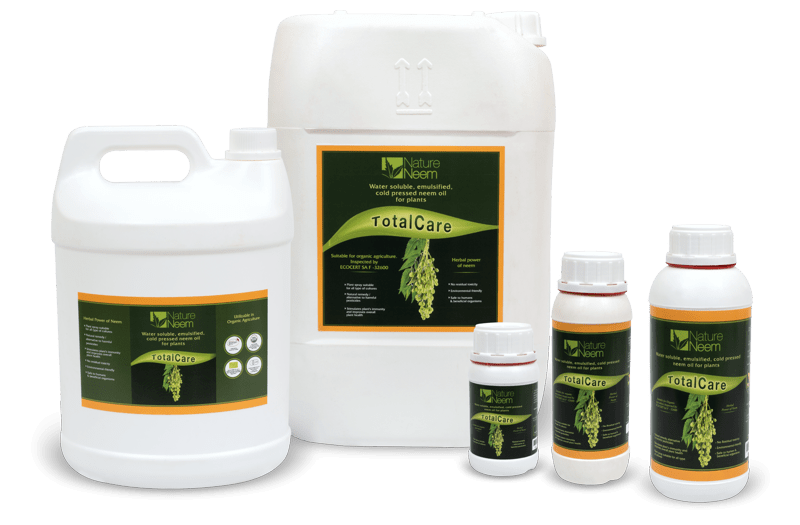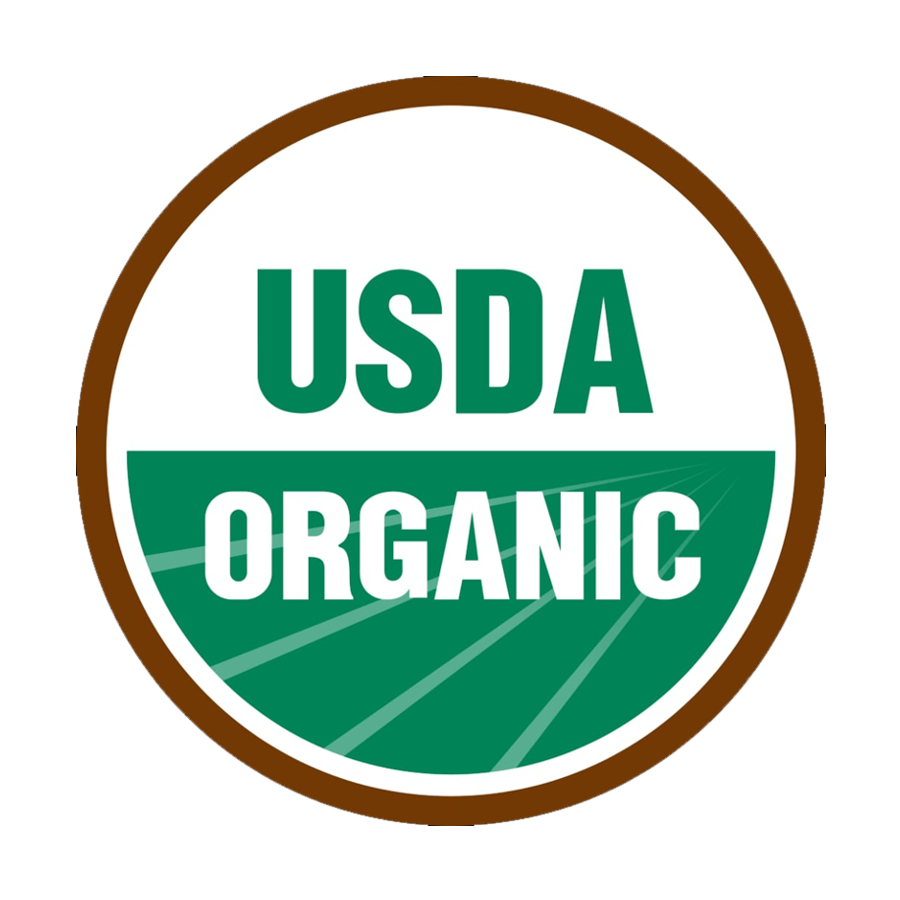
Neem Oil
Organic, natural and biodegradable.
The pesticide of choice for organic agriculturists.
Agriculture
Neem as a Bio-Pesticide
The Emulsifiable Concentrate (EC) of neem
-
Neem pesticide is a natural product, absolutely nontoxic, 100% biodegradable and eco-friendly.
-
It is suited for mixing with other synthetic pesticide and in fact enhances their action.
-
None or lesser quantity of synthetic pesticides needs to be used, thereby reducing the environmental load.
-
Several synthetic pesticides being single chemical compounds cause easy development of resistant species of pests. Neem consists of several compounds hence development of resistance is impossible.
-
Neem does not destroy natural predators and parasites of pests thereby allowing these natural enemies to keep a check on the pest population.
-
Neem also has systemic action and seedlings can absorb and accumulate the neem compounds to make the whole plant pest resistant.
-
Neem has a broad spectrum of action active on more than 200 species of pests.
-
Neem is harmless to non-target and beneficial organisms like pollinators, honey bees, mammals and other vertebrates.
Mode of applications of Neem pesticide
How Neem works as a pesticide
As an insect growth regulator
The insect larva feeds when it grows and it sheds the old skin and again starts growing. This particular shedding of old skin is the phenomenon of ecdysis or moulting is governed by an enzyme ecdysone. When the neem components, especially Azadirachtin enter into the body of larvae, the activity of ecdysone is suppressed and the larva fails to moult, remains in the larval stage and ultimately dies. If the concentration of Azadirachtin is not sufficient, the larva manages to enter the pupal stage but dies at this stage and if the concentration is still less the adult emerging from the pupa is 100 % malformed, absolutely sterile without any capacity for reproduction.
As an ovipositional deterrent
This property is known as Ovipositional deterrence, and comes in very handy when the seeds in storage are coated with neem Kernel powder and neem oil. The seeds or grains obtained from the market are already infested with some insects. Even these grains could be treated with neem seed kernel extract or neem oil; after this treatment the insects will not feed on them. There will be no further damage to the already damaged grains and at the same time when the female comes to the egg laying period of its life cycle, egg laying is prevented.
As a feeding deterrent
When an insect larva sits on the leaf, the larva is hungry and it wants to feed on the leaf. This particular trigger of feeding is given through the maxillary glands give a trigger, peristalsis in the alimentary canal is speeded up, the larva feels hungry and its starts feeding on the surface of the leaf. When the leaf is treated with neem product, because of the presence of Azadirachtin, Salanin and Melandriol there is an anti – peristaltic wave in the alimentary canal and this produces something similar to vomiting sensation in the insect. Because of this sensation the insect does not feed on the neem treated surface. Its ability to swallow is also blocked.
Other pesticidal activity includes
- The formation of chitin (exoskeleton) is also inhibited.
- Mating as well as sexual communication is disrupted.
- Larvae and adults of insects are repelled.
- Adults are sterilized.
- Larvae and adults are poisoned.
Neem as a Bio-Fungicide
As a fungicide, neem oil is mainly used as a preventative and when disease is just starting to show. It coats the leaf surface which in turn prevents the germination of the fungal spores. Neem oil is effective against rots, mildews, rusts, scab, leaf spot and blights. When NutrAza, made from neem seed cake is applied in soil, plants show increased resistance to root rot fungus like Rhizoctonia brassica. Hence NutrAza is a favorable input for vegetable growers especially who go for organic certification.
Neem oil spray found to kill the fungus on a heavily infected bag of soil !
Neem as a Nematicide
The high Azadirachtin content in NutrAza helps in protecting the crops against parasitic nematodes. The chemical control of nematodes is costly, particularly for poor farmers, as well as its harmful for air, soil and water. Our NutrAza, made from neem seed cake, was found to be effective in controling nematodes. NutrAza is known to control tje root-knot nematode found in vegetable crops like Helicotylenchus erythrina, Meliodogne arenaria, Meloidogyne incognita, Pratylenchus sp, Haplolaimus indicus M.javanica. It has proven effects agins Reniform Nematodes like Rodopholus similis (banana), Trylenchor hynchus.
In the Mauricious Islands, the organic farmers use our neem seed powder to push back the nematodes, a threat in the banana culture. They assure us that the banana quality and appearance have increased remarkably. In Burgundy, France, the wine growers use the neem seed powder for disinfection of the soil against the flavescence. In italy, a major organic fertiliser company buys our-product to enrich their plant growing media. They confirm that our product protects the seedlings during their earlier stages of the plant especially against the nematode attacks.
Neem in Soil Management and Plant Nutrition
As a soil conditioner and organic manure
As a fertilizer efficiency improving product
Neem seed cake powder
Neem in Storage Control

Certifications
Nation organic Program (NOP)

European Commission standards
n° 834/2007 & 889/2008 Regulations

Inspected


 Français
Français  Italiano
Italiano  Español
Español  Deutsch
Deutsch 